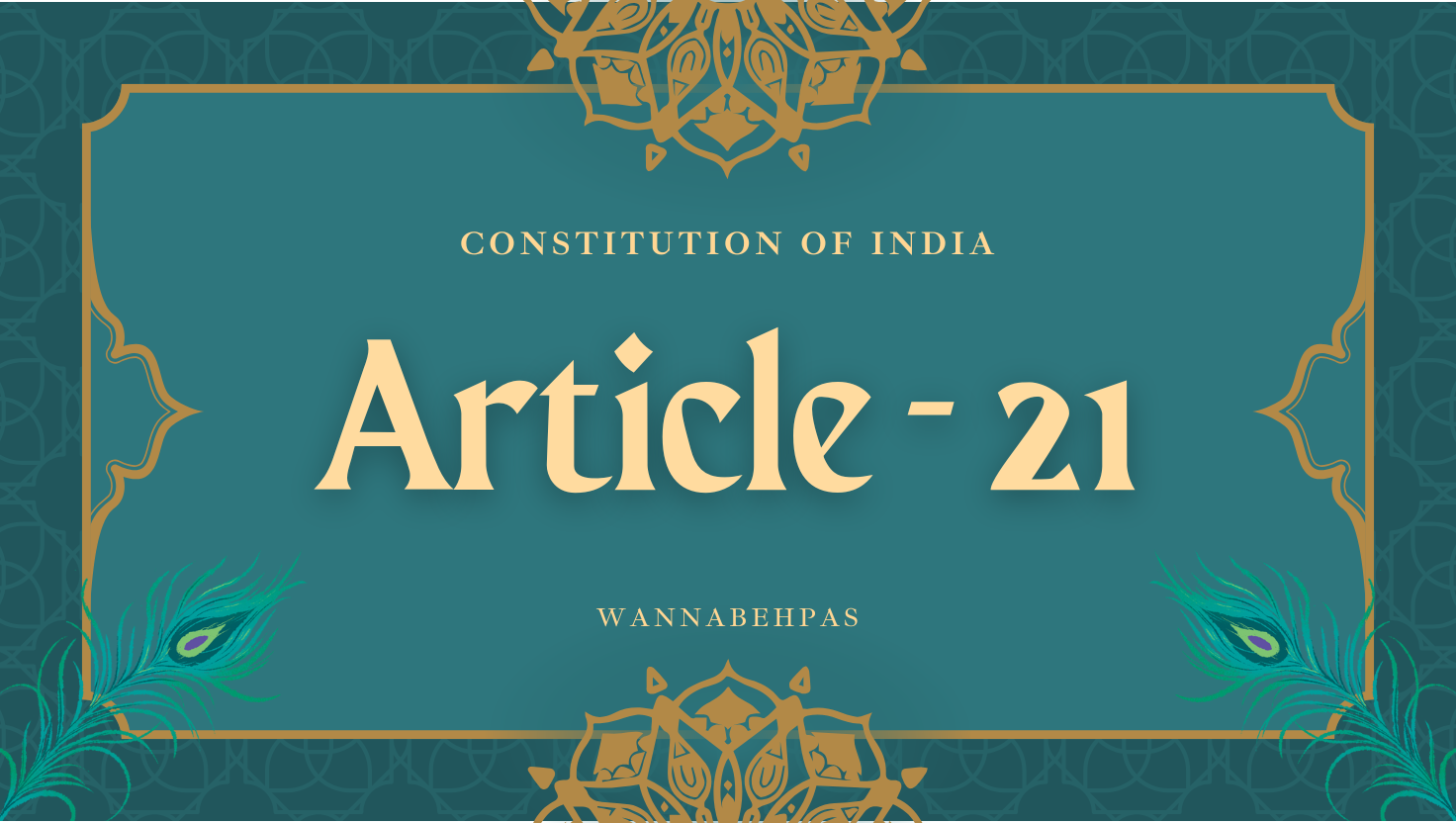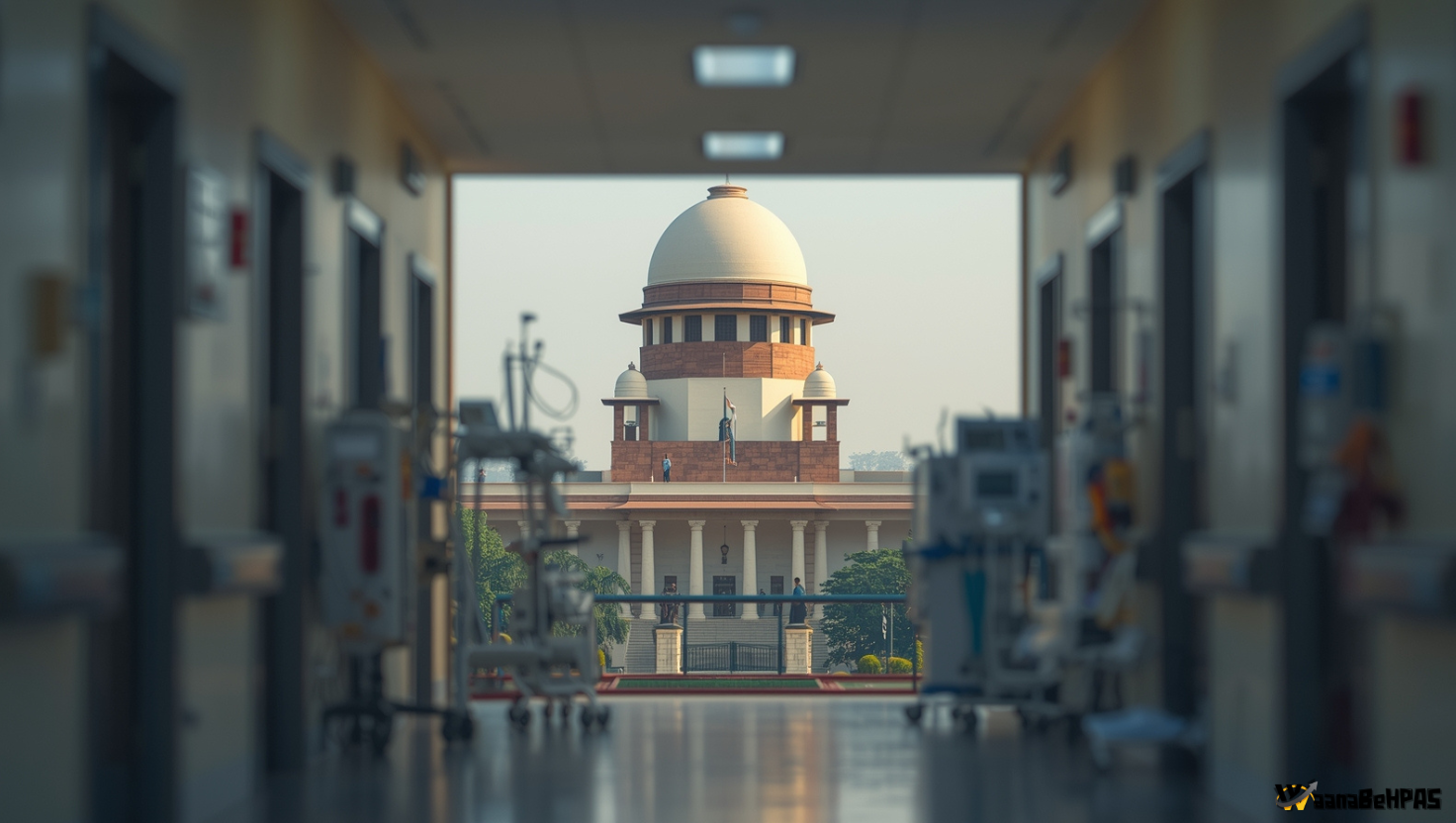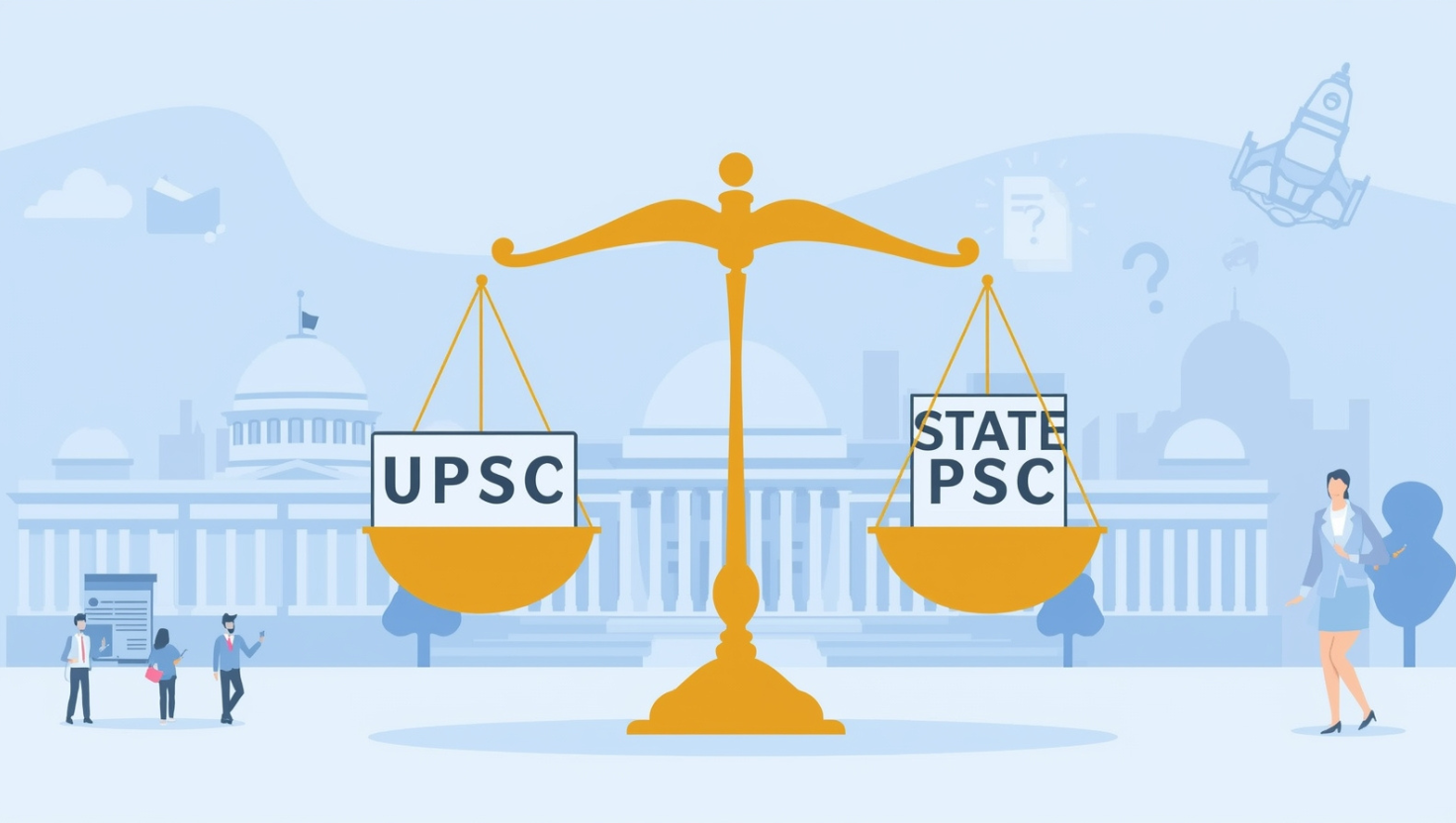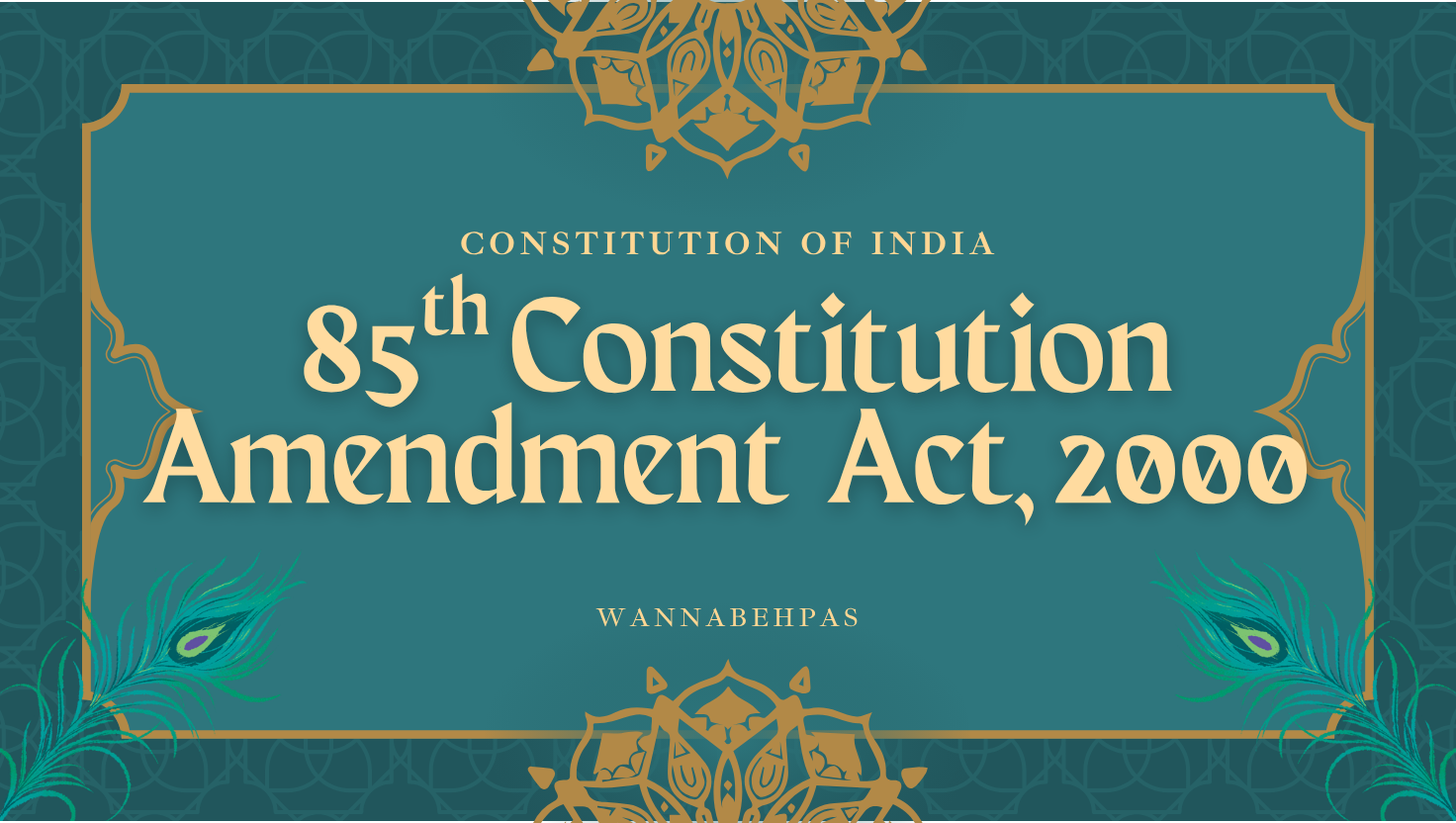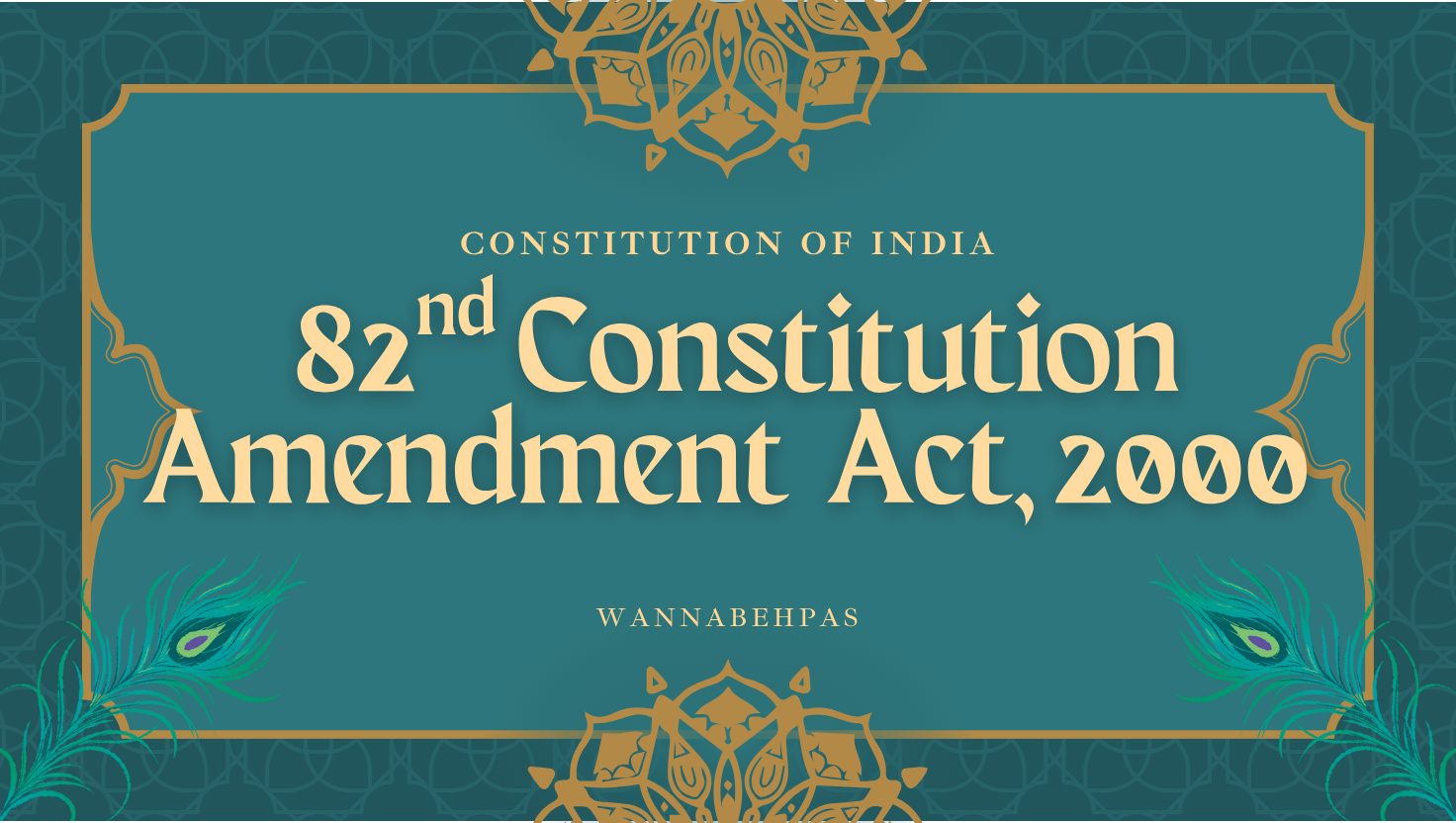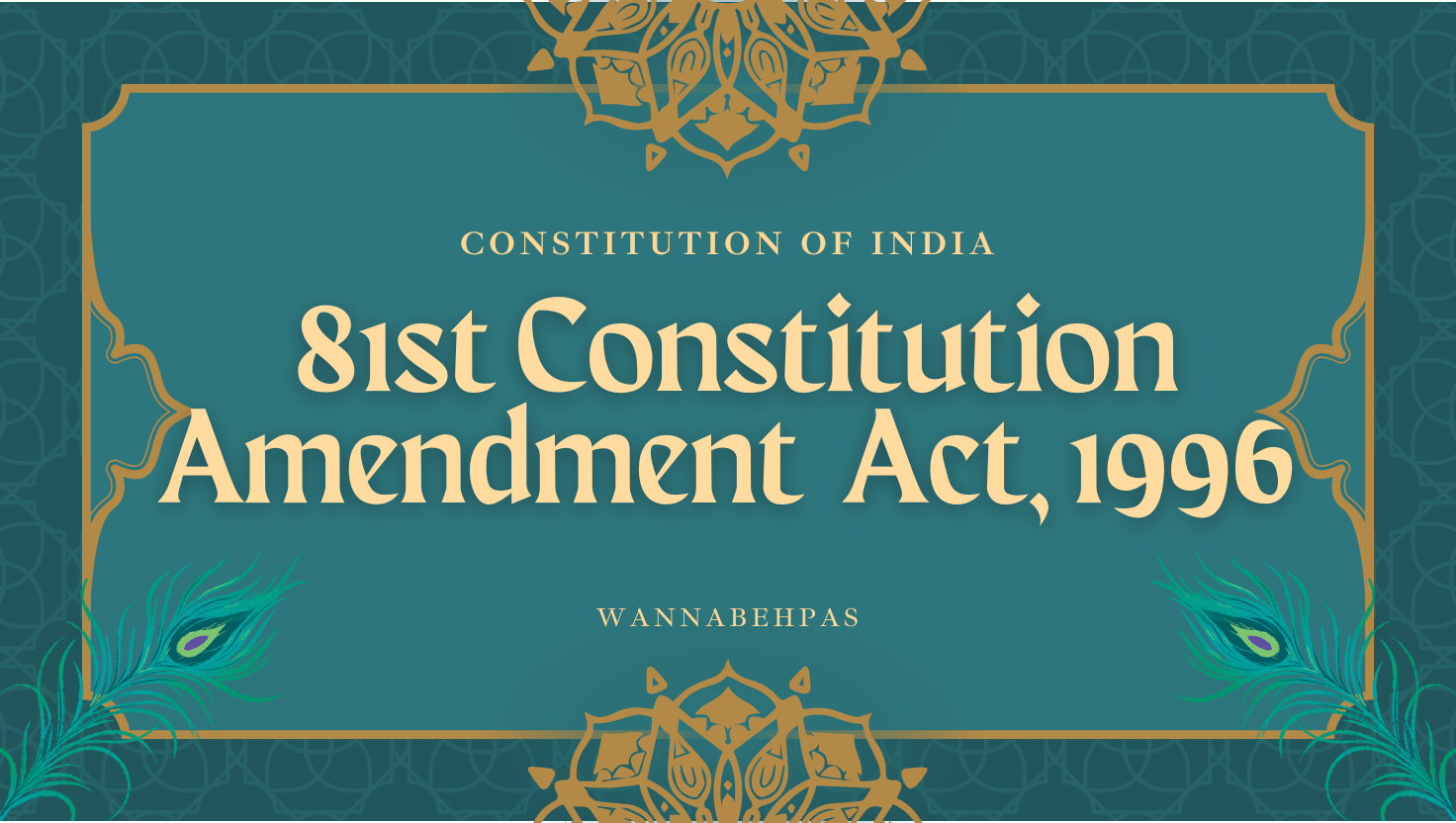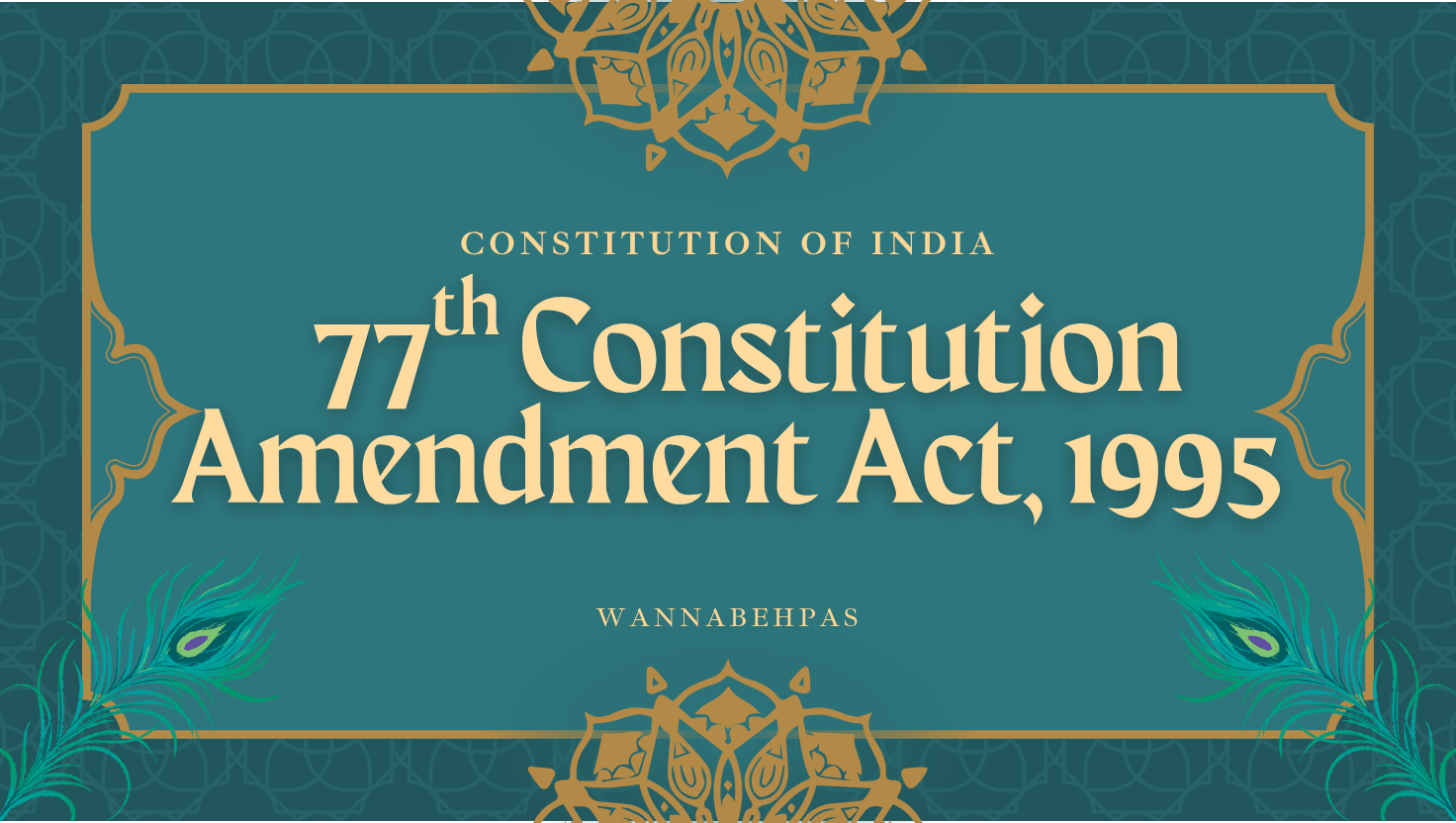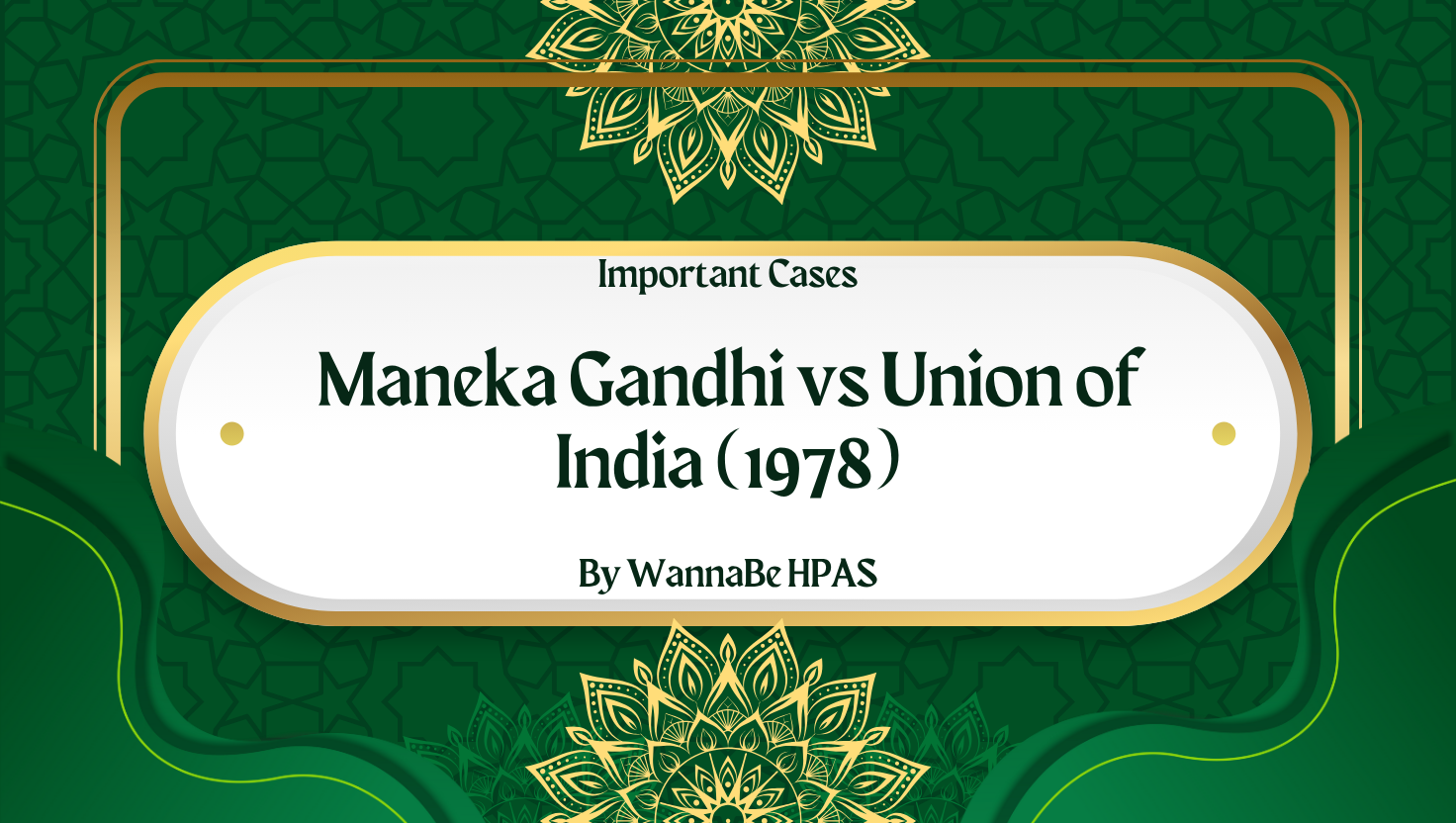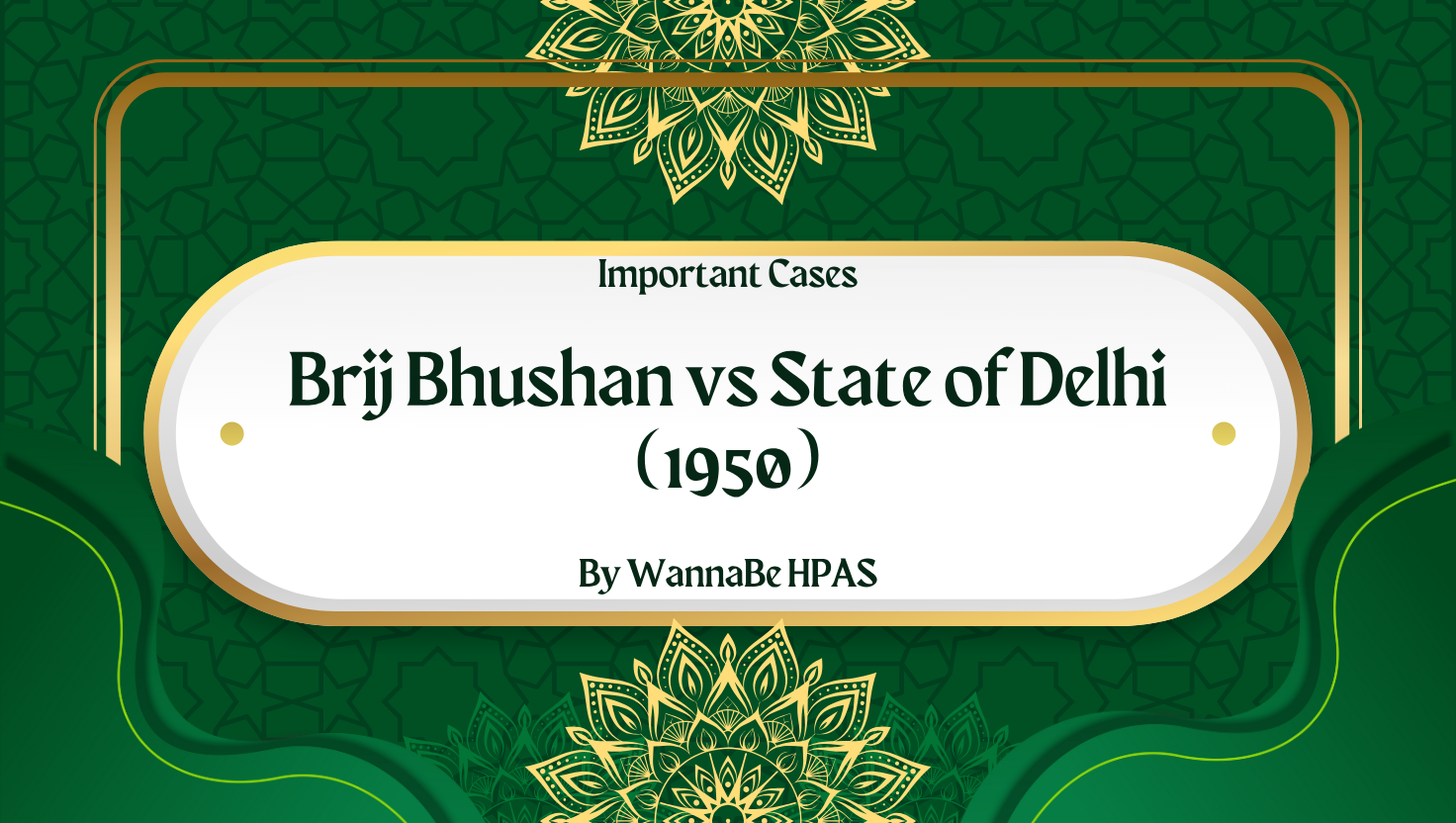Article 21: Right to Life and Personal Liberty
Syllabus: Indian Constitution – Fundamental Rights
Constitutional Provision
- Text: “No person shall be deprived of his life or personal liberty except according to procedure established by law.”
- Guarantees protection from arbitrary deprivation of life and liberty.
- Covers right to live with dignity, livelihood, health, privacy, safe environment, and fair trial.
Evolution of Judicial Interpretation
Early Narrow View
- A.K. Gopalan v. State of Madras (1950): Liberty = physical freedom from detention; “law” meant only state-made law.
Shift Towards Broad Interpretation
- R.C. Cooper v. Union of India (1970): Linked Article 21 with freedoms under Article 19(1).
- Kharak Singh v. State of UP (1963): Personal liberty covers rights under Article 19 as well.
Landmark Expansions
- Maneka Gandhi v. Union of India (1978):
- Life = more than mere animal existence.
- Law must be fair, just and reasonable, not arbitrary.
- Olga Tellis v. BMC (1985): Right to livelihood is part of right to life.
- Vishaka v. State of Rajasthan (1997): Right to safe workplace under Article 21; laid down guidelines against sexual harassment.
- NALSA v. Union of India (2014): Right to dignity, equality, and identity for transgender persons.
- Animal Welfare Board v. Nagaraja (2014): Extended protection to animals, banning Jallikattu.
- K.S. Puttaswamy v. Union of India (2017): Right to privacy recognized as intrinsic to life and liberty.
- Common Cause v. Union of India (2018): Legalized passive euthanasia; right to die with dignity.
Due Process & Fair Trial
- Protection against arbitrary arrests and detention.
- Ensures fair trial, legal representation, and judicial safeguards.
- A.K. Roy v. Union of India (1982): Upheld preventive detention under NSA, limiting application of natural justice in national security.
Scope of Article 21 Today
- Covers: dignity, livelihood, education, environment, health, privacy, speedy trial, protection from torture.
- Restrictions allowed in interests of public order, security, health, and morality, but must be reasonable and proportional.
Conclusion
Article 21 has evolved into the most expansive fundamental right, touching almost every aspect of human existence. Judicial interpretation has transformed it from a narrow guarantee of physical liberty into a foundation of human rights in India.

